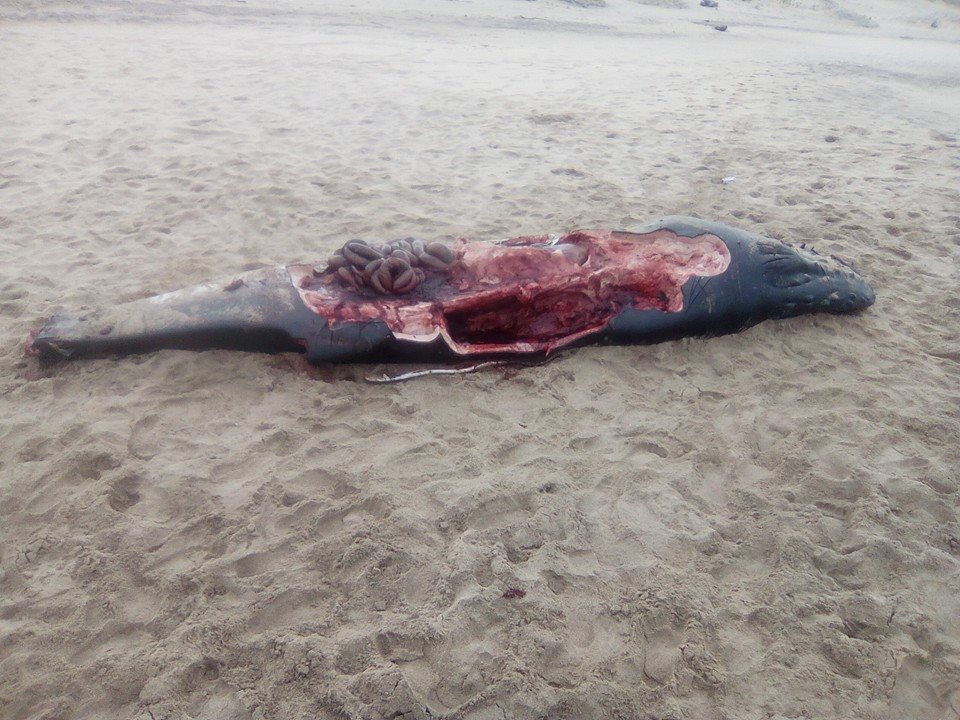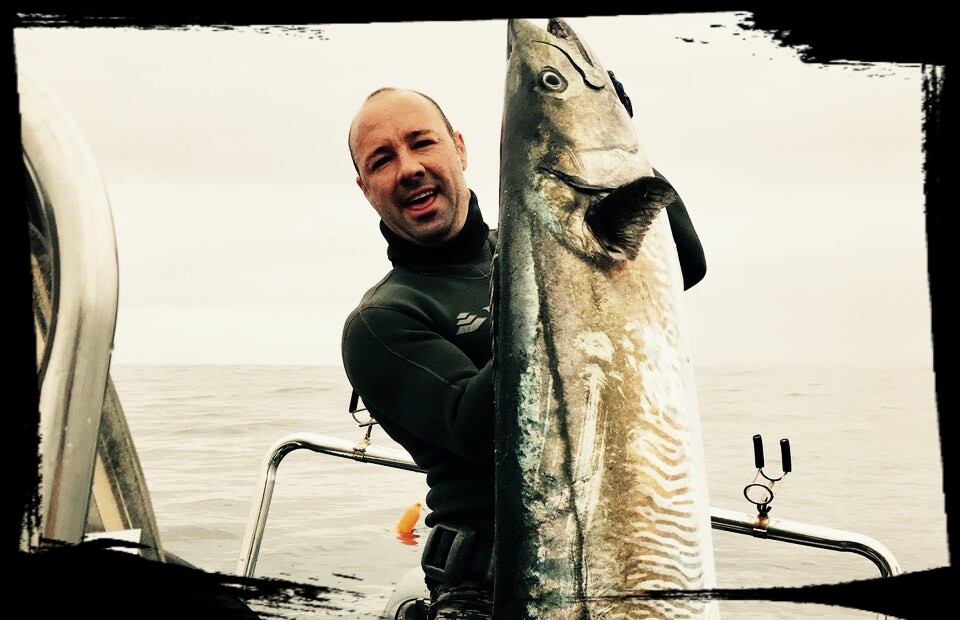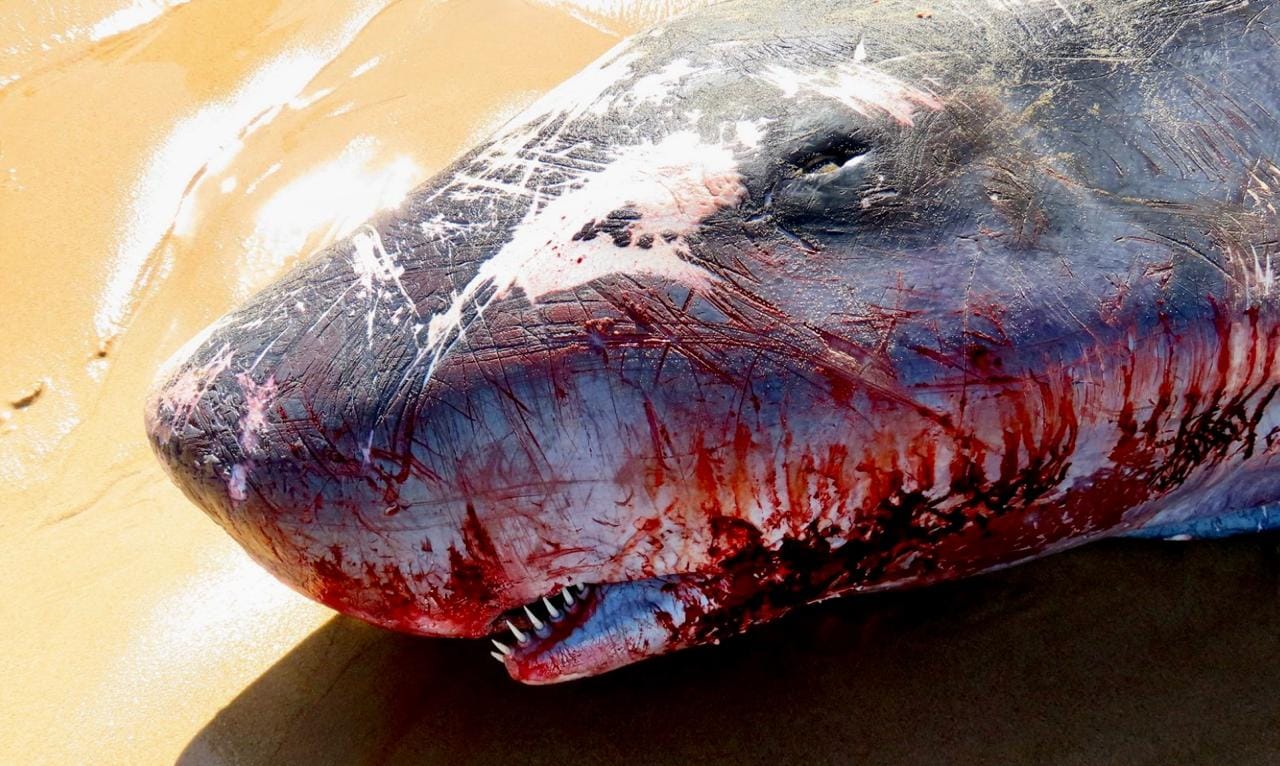
Death by Shark Net?
Death by Shark Net? Before we embark on this quick journey into the operations and goings-on at our very own Kwazulu Natal Sharks Board, we have a questionnaire for you! You don’t have to make public your answers. Your answers, are for you to digest.
Questionnaire
- How many times have you swam in the sea this year so far?
- How many whales, dolphins and other marine animals have to die of asphyxiation in the gill nets set by the sharks board per year, so you can go swimming? (Spoiler – it’s 500 or so)
- How come the entirety of the Cape has not one single shark net?
- Do you know that your taxes pay for the endless killing spree of the KZNSB?
Shark food for thought?
Funding
Yes, you pay for it all. With your taxes. You pay the salaries of the people who go out and do the killing. You pay for the nets and machinery that lays to waste marine life day in and day out. You pay for the fuel that those boats burn up. You pay for the administration of all this blood.
This is from Microsoft…
“The KZNSB services a combination of shark nets and recently-deployed drumlines, spread at intervals along 320 km of coastline in KwaZulu-Natal, thereby providing protection against shark attack at 38 localities. It employs about 170 staff members, most of whom put to sea on 15 boats to service the equipment.”
Purposefully laying waste to marine life. Every single day.
Dwarf Sperm Whale
Well, one thing is for sure, if not for the Kwazulu Natal Sharks Board nets allegedly achieving this result, I would never have ever come across a Dwarf Sperm Whale. Unbelievably, there are two of these weird incarnations. We also get a Pygmy Sperm Whale.
Both are incredibly rare. And yet, here is a dead Dwarf version washed up in the East London area recently. It is one of four reportedly, that have died this way lately.
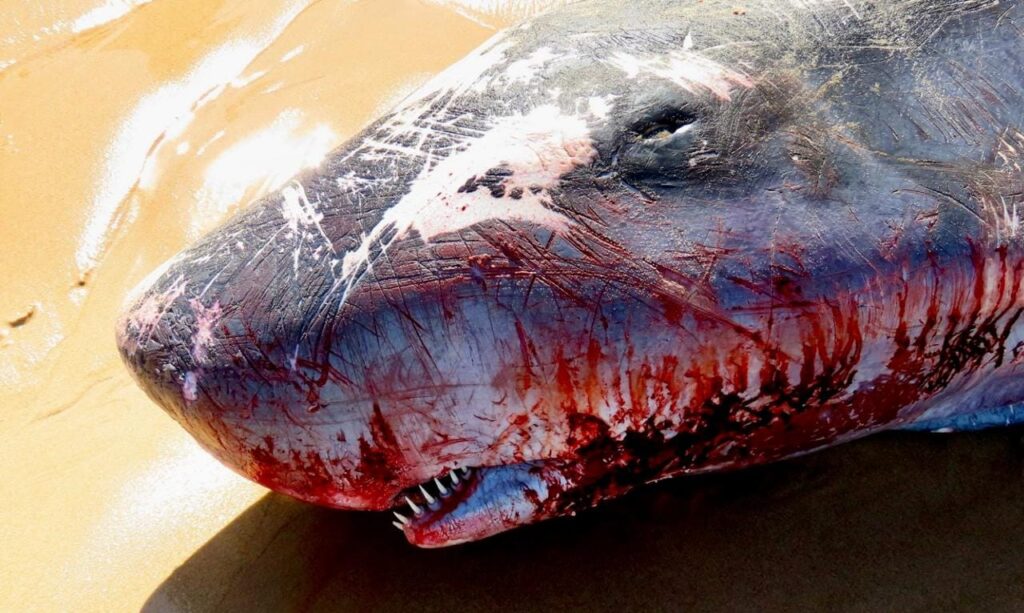


The original post came from a conservation group known as The Green Ripple…the animal came ashore on an East London beach.
How the whale got there is simple. The animal got free of the nets that it was entangled in. There are no pieces of net left trailing as would be the case if the animal powered itself through the shark net. It may still have been alive when it was cut free. Common practise of the KZNSB is to drag sharks or other live animals caught in the nets, a distance out to sea, and let them loose. Allegedly, this was the case with this animal.
Either way, the Agulhas Current is super-charged. It can read 6 knots at times. And when the North-East wind cranks, the surface waters can move even faster. 6 Knots is 6 miles per hour, equating to 11.11 kilometres per hour. From Port Edward (the southern-most KZNSB killing field), to East London by sea is 300 km. This means it takes barely 30 hours to drift its way out of being found beached up north.
Although many cetaceans, after death by shark net, also watch up right in KZN still.
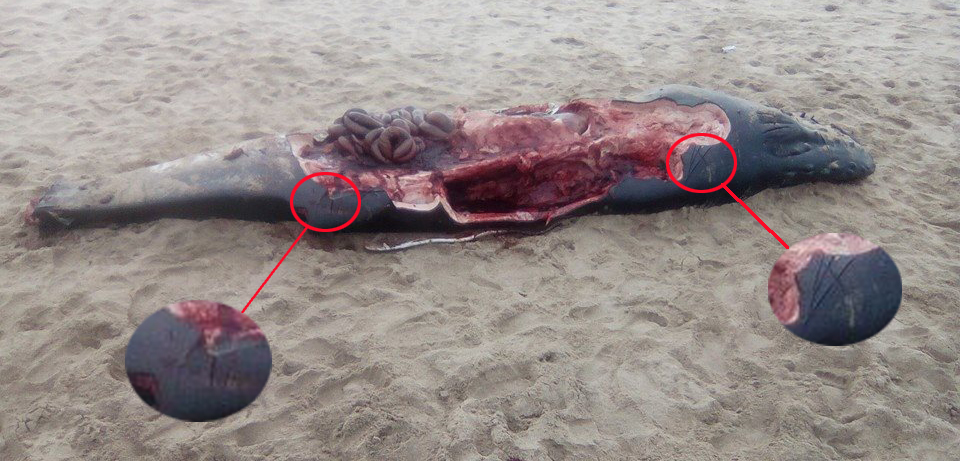
You can read all about this little whale guy right HERE.
Baby whale dies in net at Trafalgar. Shark nets most likely says lifeguard. (thesardine.co.za).
And here is a list from the other bunch of ignoramus on the planet – who also deploy this archaic and brutal practise. Yip, you guessed it – the Ozzies.
Check their list of recent and well-documented achievements…
Disturbing truth behind Australia’s shark nets – Nature in Mind (tracybrighten.com)
Relief As Entangled Whale Freed From Gold Coast Shark Nets | Triple M
The Dangers of Shark Nets: Humpback Whales getting Caught along the Gold Coast – Ocean Pancake
At least their press over there is wising up. There are so many stories. It turns out they have killed double the marine life than us here in South Africa.
Selling Shark Meat and Fins
Yes, they have practised it all. And they still want to do more of it…enjoy this read and clear admission of guilt. Admission of no understanding whatsoever. Of the fact that remove a shark, and there isn’t another to just take its place.
https://www.iol.co.za/news/south-africa/kwazulu-natal/board-in-bid-to-sell-shark-meat-1787770
This is a clear and present rogue government-sponsored organisation.
Sharks are the slowest growers out there. A White Shark matures at 30 years old or so. The Zambezi, or Bull Shark, takes 15 years to get 2 metres long and able to reproduce. There are hardly any of either of these fish left either. The population is down to a fraction of what it should be to balance the oceans out.
The Law
There is a thing called the United Nations Convention on the Law of the Sea aka UNCLOS.
Article 65 of the United Nations Convention on the Law of the Sea (UNCLOS) addresses the conservation and management of marine mammals. Here’s a summary of its key points:
- States are required to cooperate for the conservation of marine mammals.
- In the case of cetaceans (whales, dolphins, and porpoises), states should work through appropriate international organizations to ensure their conservation, management, and study.
I guess we better ask Greenpeace or Sea-Shepherd for their help at this stage. Sea Shepherd have started picking on the Ozzies finally. Hopefully we will be next.
Facts and Figures From Co-Pilot (AI)…
The KwaZulu-Natal Sharks Board (KZNSB), which operates a “shark control” program using shark nets and drum lines off the coast of KwaZulu-Natal Province, South Africa, has been involved in the killing of marine animals. Over a 30-year period, the following numbers of animals were killed as part of their program:
- Sharks: More than 33,000 sharks.
Turtles: 2,211 turtles.
- Rays: 8,448 rays.
Dolphins: 2,310 dolphins1 (follow the link for more from Wikipedia too)
Conclusion
Remove the shark nets! Save everything that’s left!
Here are the same ‘alternative solutions’ I presented to the then ‘Natal Sharks Board’ in the 1990s. They would not listen to me. Four scientists and Graeme Charter did everything in their power to continue the slaughter rather than look at these technologies.
Shark Detection and Alarm System – Tiger Lily Consulting (Pty) Ltd
Shark Exclusion Net System – Tiger Lily Consulting (Pty) Ltd
Used together these systems will protect the bathers. And the marine animals. And only when and where they are needed. There is no need to be killing marine wildlife tonight.
While we are all sleeping?!
Affiliated websites
https://umzimkulu.co.za – self-catering right on the river
https://umzimkuluadrenalin.co.za – sardine run coming up
https://thesardine.co.za – never miss a single sardine
https://masterwatermen.co.za – news from deep down
https://brucifire.co.za – surf and conditions reporting
https://fishbazaruto.com – your dreams are out there
Affiliated YouTube Channels
https://youtube.com/@mydotackletalk – highly technical sport fishing
https://youtube.com/@thesardinenews – neva miss out
https://youtube.com/@waterwoes – complain here
https://youtube.com/@Brucifire – entertaining surf reporting
https://youtube.com/@surflaunchingsouthernafrica – getting out there

